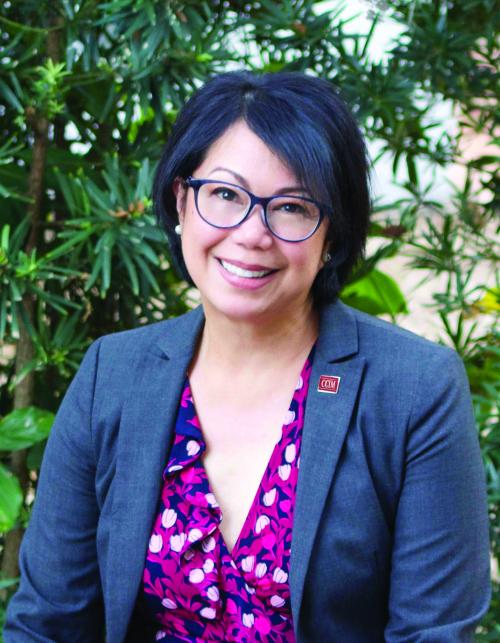
CCIM Spotlight
How long have you been in CRE, and what was your path into the industry?

Malolos: I started at the end of 2013. Before that I was a residential broker for about 10 years. I attended many leadership academies, particularly Leadership Osceola, Florida Realtors Leadership Academy and the National Association of REALTORS® Leadership Academy, and I became president of the Osceola County Association of REALTORS® in 2010.
In 2012 I got a phone call from the city of St. Cloud, Fla. asking if I'd be interested in representing the commercial parcels that were owned by the city. I thought to myself, “Oh my God, I don't know anything about commercial real estate.” But of course, the answer was yes. My next step was to call one of the largest land brokers here in Polk County, Ben Crosby, CCIM, ALC (Florida CCIM Chapter Past President) and ALC. I had met Ben previously because he participated as the Trustee for our REALTOR® PAC. We attended a lot of the same leadership dinners, and we developed a friendship.
I asked if he would mentor me and partner with me in the request for proposal for this project. He said yes, and long story short, between the local representation that I had and having Ben Crosby’s CCIM Designee and ALC experience, we won the project. Five years later, we sold all of the parcels, and now the city has a Walmart neighborhood store, a Heartland Dental, a shadow strip center, a 240-unit multifamily apartment, a charter school, senior housing, an industrial project, and more retail that came on board. I was also mentored by Robin Webb, Past President of The CCIM Institute through the Florida CCIM Chapter Central District's 2013 Mentorship Program.
How has being a CCIM helped to advance your career?
Membership in The CCIM Institute has been a game-changer for me. I immigrated to the U.S. in 1989 from the Philippines, and I became a U.S. citizen in 2000. Because I'm an immigrant who moved a lot, I did not have the network that Americans already had. I had to really find my place in a community because I didn't have one. The CCIM Institute and the REALTOR® families became my community.
I'll share with you another story; I was doing pre-leasing for the landlord of a new shopping center and received a phone call from an office broker from a large company who has been in the business about 30 years. The broker called me because he wanted to talk through some of the deal points and while I don't believe he realized he was talking down to me, he was telling me exactly how the deal was going to go down. I merely listened, and at the end of the conversation told him to write down all of his deal points, email them to me, and we will go from there. The broker emailed me and I responded back with my email signature that had the CCIM Designation behind my name. That was a turning point and the broker did not speak that way to me again. My point is that the CCIM Designation is very well recognized in the industry and garners respect.
You started your company in 2020. What motivated you to start your own firm?
Well, COVID happened, and the office was shut down. It was really an opportune time to rethink my career, and a couple of people asked me if I'd be interested in building a company because I was a CCIM Designee and a CRB (Certified Real Estate Brokerage Manager). I was interested because I wanted to set my own destiny, so, I said that I would be willing, but I wanted to make sure that we hired a consultant before we launched, to start off on the right track. I didn’t want to hire a consultant five years later to fix mistakes we could have corrected early on.
My firm hired Blaine Strickland, CCIM, who is also instructor with The CCIM Institute, as well as a well-known commercial real estate coach and author. Together, we went into a three-day immersion period and all we did was strategic planning. That's really how we launched. I parted ways with my three partners last March because they were pursuing other opportunities. So, I am the sole owner of Capital Stack Real Estate Group, and we have six specialists – a business broker, a developer, office/industrial, gas station/retail, and a couple of junior brokers.
The exit multiplier for a brokerage firm is around 1.2x to 2x. So, I knew that brokerage was not going to be my main focus. I want to make sure that I am pursuing other avenues and opportunities to increase the value of my company, which led to my goal of being one of the few women real estate developers in the commercial real estate industry.
What are some of the steps that you’re taking to achieve your goal?
In terms of how I’m preparing to be a developer, I’m on the Development Specialty Track offered through The CCIM Institute. I also think that what happens when you set your mind on something is that, all of a sudden, your eyes are now open to every opportunity because you focused on it.
The main goal of one of my junior brokers, Wayne Davey Jr., is to prospect for industrial. In the course of prospecting for a private school client, which we have been working with for a couple of years, he came across a piece of property that could not be rezoned for the private school—so we asked the owner if he would be willing to partner with me on an industrial development project. He’s agreed to bring the dirt to the deal. I'm currently putting the deal together, and we're going to develop 60,000 sf of small bay industrial in an area that has very little inventory. We're going to pre-lease, and then we're going to put it on the market as an investment property. We also have a second project in the pipeline.
Last summer, you also launched a podcast, Women Influencers in Business and CRE. What motivated you to do that?
I belong to this great women's group that was put together by a Filipino lady in fintech, Marissa Limsiaco, who co-founded Otso. She put this group of influential women together from all different areas—proptech, brokerage, finance, law, etc. In the course of that, I met another CCIM Designee, Amy Calandrino, CCIM, from Orlando who was a past President of the Florida CCIM Chapter Central District. She inspired me to do a podcast since she herself has a successful podcast. So that was a very intentional strategy to grow my social media presence, but more than that, my whole goal was to provide inspiration to other women, not just in commercial real estate, but in business in general.
Women own 43% of small businesses in the U.S. That's significant. So, I think there is an audience for women who are looking for other successful women who can speak to the challenges of building a career, raising a family and all of those things that matter and are very unique to women. I'm also very intentional in having guests that are diverse.
There are a lot of dynamic things going on in the commercial real estate market. What do you see as the biggest challenge in the current market, and how are you working to overcome that challenge?
Everybody's talking about how commercial loans are coming due that might not be able to refinance, especially in the office market. In Florida, it seems like we're insulated from what is going on around the country because the net in-migration is about 1,100 people moving to our state every day. Vacancy rates in the Orlando office market are only around 15.4%, which is very different from the rest of the country.
I am seeing a lot of private equity entering the market to plug up the holes because lending has contracted. I’m getting a lot of invitations for financing projects. There's a lot of private capital that needs to be deployed, and I think that necessity is the mother of invention and whenever there's a need, some other segment enters the market. For a time, I was thinking to myself, is now the time to develop because lending rates are so expensive? How can I be profitable? But then you have private equity or a capital fund that is coming in and saying, “Can I invest in your project?” And because of my experience with the Development Specialty Track offered through The CCIM Institute, I think I'm better poised to pitch projects to these private equity companies.
What do you see as the biggest opportunity in the current market for CCIM Designees in general?
I love the fact that The CCIM Institute is going through a brand modernization. The most exciting part for me is that they're going to focus CCIM Designees as commercial real estate experts and that really speaks to the consumer. I think it’s very timely because there are a lot of disruptions that are going on in the industry, with the economy, the evolution of AI, and the next generation of more diverse professionals. For example, Florida has a big Hispanic population that's investing in our industry and we really need to prepare for that. I believe the CCIM Designation is the way to prepare for the way of the future. If things shift in the industry, a lot of the commercial real estate professionals in general fall off. Only the best and the fittest will survive, and I believe those are CCIM Designees.
The Development Specialty Track program provides commercial real estate developers, investors, and consultants with an understanding of the resources and business practices required for successful development projects.





